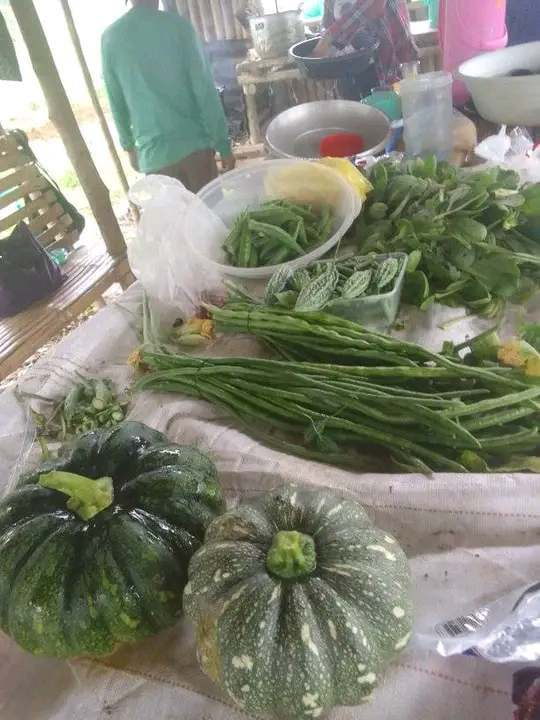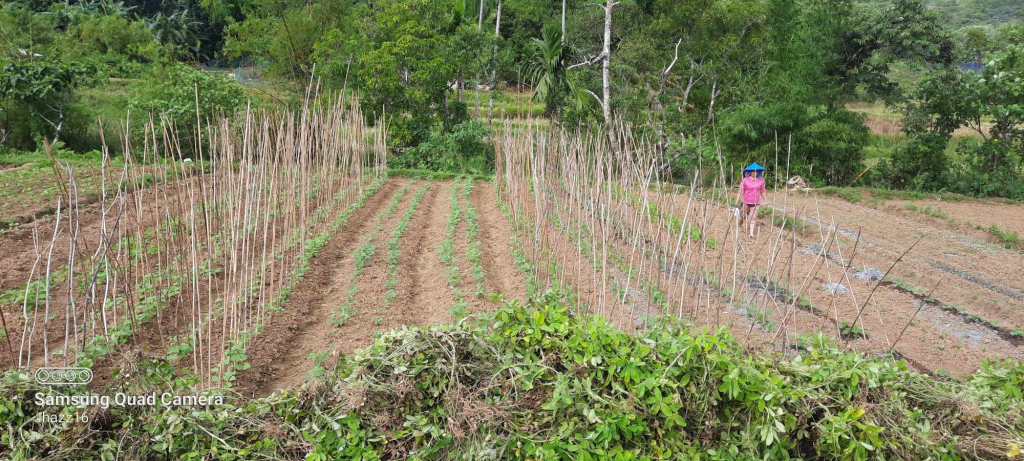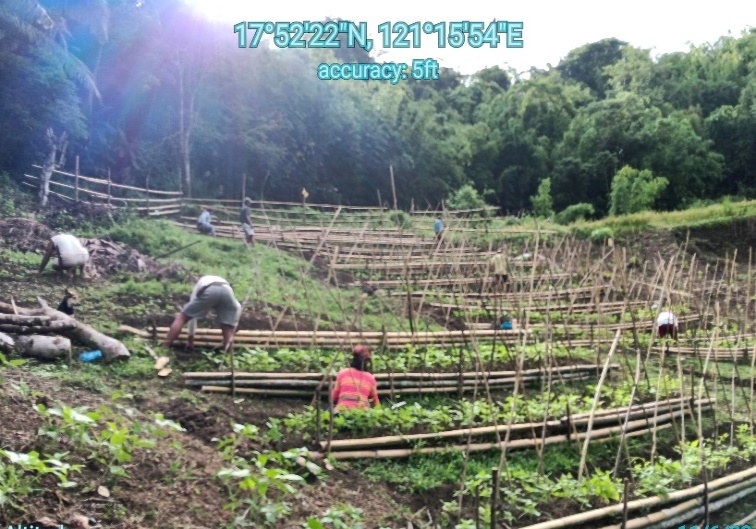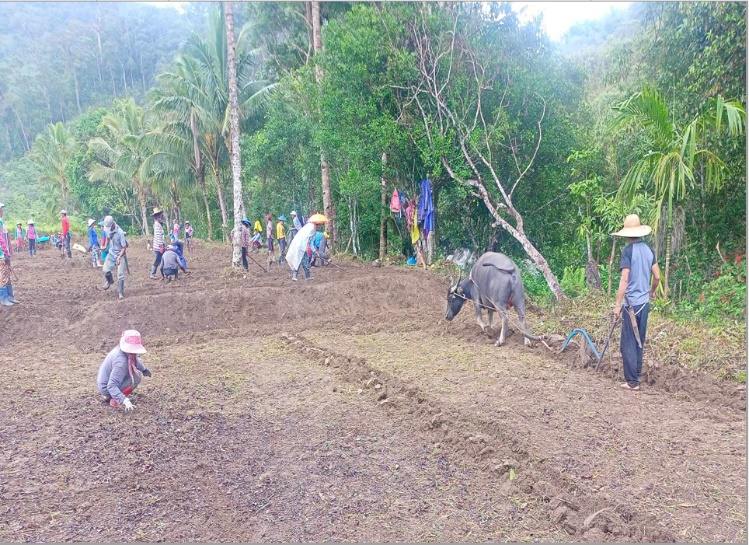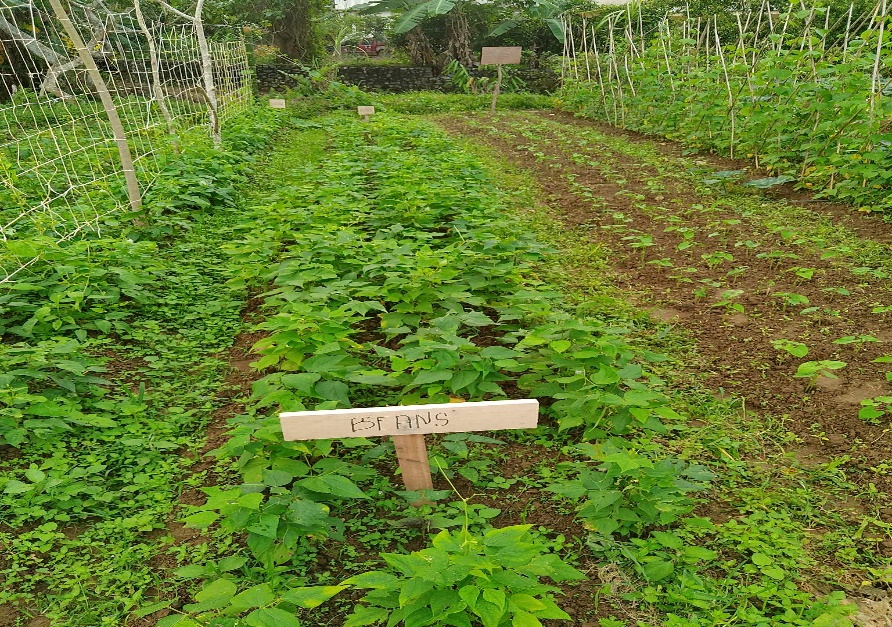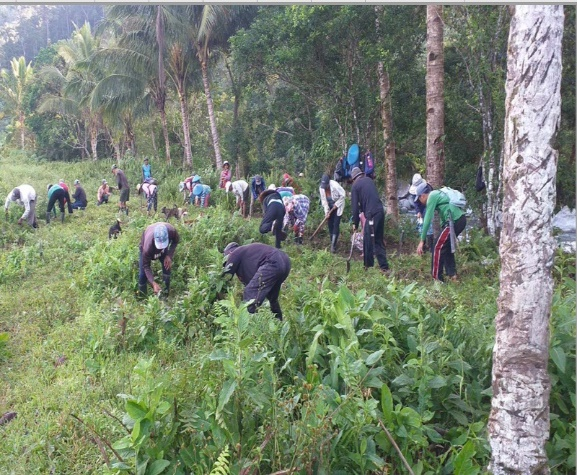
Home to Isnag indigenous peoples and other indigenous communities, the Province of Apayao is also dubbed as “The Last Nature Frontier” for its rich and diverse biodiversity.
Each of its seven (7) municipalities has its distinct characteristics; Calanasan is dubbed as the “Home of the Giants” while Conner is known as the “Fruit Basket of Apayao Province”. Both municipalities are highly agricultural reliant of which rice and corn are their most common products of whose foes is the sudden climactic changes such as drought and monsoons.
Gearing towards livelihood and food security, a total of 1,263 beneficiaries worked through the Department of Social Welfare and Development’s Risk Resiliency Program (RRP) Climate Change Adaptation and Mitigation (CCAM) through Cash-for-Work (CFW). Communal gardens were established during the ten-day implementation period.
In Conner, eight (8) communal gardens were established particularly in Barangay Ili and Barangay Guinaang. Whereas in Calanasan, a total of 12 communal gardens were cultivated in barangays of Tanglangan, Eva, Parina, Poblacion, Eleazar, Naguilian and Sabangan. These communal gardens measures from 5,000 to 10,000 square meters.
Clearing the Fields of Uncertainties and Sowing the Seeds of Commitment
Seeing the communities’ interest in participating in the Progam, the Provincial Local Government Unit of Apayao committed counterpart in the form of seeds and propagules which were planted in the communal gardens. However, there were problems encountered during the procurement of such.
Upon learning this, the beneficiaries expressed their willingness to provide the needed seeds and propagules. As Barangay Captain Amado Padeway has said, “Awan problema nga isu da agiprovide ti imula da ta isuda met lang met agbenefit ijay project. Para mt iti bumarangay iti project isu nga haan da nga ispupuso da nga agited.”
True enough, when the implementation started, each of the beneficiaries brought beans, string beans, pechay, eggplants, gabi, okra seeds.
Caring and growing the sprouts with caution
Since the program promotes climate change adaptation and mitigation and disaster risk reduction, the beneficiaries employed organic farming practices. During the orientation, it was emphasized that the use of chemical pesticides and fertilizers is not allowed. Learning from this, they initiated to employ organic composting as the source of fertilizer. According to the beneficiaries, practicing organic farming would ensure the quality of their produce and maintaining the fertility of the soil.
What was notable on these two (2) municipalities is their unity which led to the smooth implementation of activities. The beneficiaries were able to organize themselves with minimal technical assistance from the Project Development Officers. They have grouped themselves strategically to improve their efficiency and effective in implementing the communal gardening, they clustered based on the nearness of their homes to the garden site. Also, they were able to fix their daily work schedule with the tasks required by the Program.
During the monitoring, a strong sense of community and kinship is observed among the beneficiaries. They would often bring their own pakkal [rice and viand wrapped together using leaves of a certain plant] and would share among each other.
In order to ensure that their plants will grow out just fine, they made a maintenance schedule after the ten-day cash-for-work. In this way, weeding and watering of the plants will be taken care of.
Reaping the veggies of their labor
On 5-13 December 2023, a total of 5,052,000.00 was disbursed to the 1,263 beneficiaries of Calanasan and Conner as payment for their ten-day Cash-For-Work. More to this, they continue to benefit from the the produce of their communal gardens. With the establishment of the communal garden, the households now have an easy access to fresh vegetables for their daily viands.
In addition, in case of over produce, the vegetables may be sold to nearby barangays. The barangay officials along with the beneficiaries has agreed on someone to collect the proceeds of their sales so they could use it for the purchase of seeds and propagules for the next planting season.
Moreover, the community gardening has strengthened the bond of the community members. One of the barangay Kagawad of Barangay Guinaang expressed, “Daytoy nga programa ket napagkakadwa na ti bumarangay. Kasla nagbalin nga bonding min nga haan min narikriknan ti bannog ken pudot. Kuna mi garud kadagitoy da benepisyaryo maam nga saysayaaten da tapno in case ada pay manen sumaruno nga project ket barbareng matarget kami manen nu mayat ti makita nga outcome na.”
For the longest time, the Department of Social Welfare and Development has been working for and with the community to improve the well being of the poor, marginalized and disadvantaged. To attain this, the job it requires is likened to the experience of traversing the high mountains of Apayao and braving the rapid flow of its river- hard and tiring. But when we feel that the community is one with us, the job becomes ten times lighter and satisfying, for community development is never just about the individuals, but the community as the whole. # DSWD FIELD OFFICE CAR, SOCIAL MARKETING UNIT, PDO II JHOANNA A. JIMENEZ, PDO I REJANE L. KINGAT with IO II MYLYN M. BONGSIAN